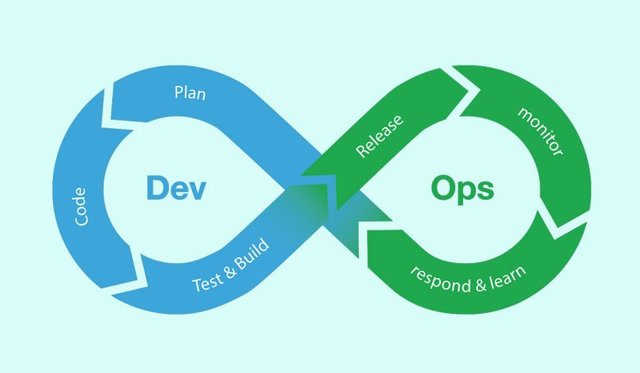✅DevOps: What it is?

C-Sagar §Æ
devops
~ credits to the photo: google.com
In software engineering, DevOps is a relatively new concept that emerges from the combination of Development and Operations. Essentially, DevOps is a practice focused on integrating software development and operations processes. It emphasizes automating and monitoring all steps to enhance communication between these two areas. The software is designed to oversee the software delivery pipeline, provide shared services, and promote innovative development tools and best practices.
DevOps primarily aims to shorten development cycles, increase deployment frequency, and improve infrastructure management. It combines agile operations with optimal collaboration between development and operations teams throughout various stages.
How DevOps Works:
The core principle of DevOps is integration and unification. The two areas and various tools work together to generate outcomes. Developers and operations teams merge into a single unit, allowing developers to manage the application lifecycle through development, testing, deployment, and more.
There are different DevOps models that assure quality and security throughout the application lifecycle. When developers focus on software security, this approach is known as DevSecOps. Although the concepts were previously outdated, they have evolved through experimentation and new ideas. A suitable technology stack and toolset empower developers to utilize software more effectively and reliably.
Key Sub-Concepts of DevOps:
Continuous Integration: This involves frequently merging application code into shared software repositories, often multiple times a day. Tools like Atlassian Bamboo and Jenkins, along with build tools like Maven and Ant, are used to validate the integrated code.
Continuous Testing: Continuous automated testing ensures smooth and satisfactory results. It necessitates the integration of tools for ongoing testing, which is essential for constant delivery. DevOps requires automated testing schedules that align development processes while minimizing errors.
Continuous Provisioning (Cloud Provisioning): Flexible virtual machines are billed based on usage. Designing a cloud instance can unify various environments such as testing, development, staging, and production.
Configuration Management: In simple terms, configuration management is a system of software engineering processes that establish a software’s operational and functional characteristics. It ensures consistent environments across all stages of a project. Popular tools for configuration management include Puppet, Chef, and Ansible, which help manage resources in cloud settings.
The configuration management process in DevOps consists of:
Source Code Repository
Artifact Repository
Configuration Management Database
Continuous Deployment or Delivery
This practice automates the process of testing and releasing code changes for production. Continuous deployment builds on continuous integration by transferring all code changes to a certified testing environment, allowing for the delivery of packages ready for any testing or production environment.
Benefits of the DevOps Approach:
Increased Speed: The application operates at a higher velocity, enabling faster adaptation and more efficient results.
Rapid Delivery: The frequency of software releases increases, allowing developers to quickly implement new features and respond to customer needs.
Improved Collaboration: The DevOps culture fosters values such as ownership and accountability, leading to shared responsibilities and better workflow between developers and operations teams.
Enhanced Security: The DevOps model enhances software security, maintaining control and compliance, which allows customers to trust the new system without concerns.
Conclusion:
DevOps is crucial not only for expediting software deployment and delivery but also for ensuring software security. It encompasses a set of cultural guidelines and practices that influence how software ideas are conceived, designed, deployed, and produced.
When designed efficiently, a DevOps model can significantly reduce the time required for software development and execution. It streamlines the delivery process and enables team members to collaborate more effectively. Additionally, DevOps addresses coding and decoding challenges during software delivery and fosters communication and support among team members, ensuring better management of software security.